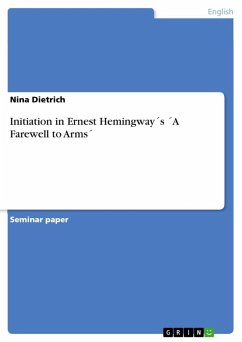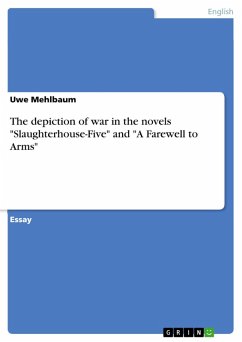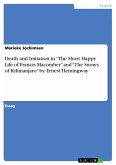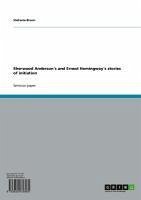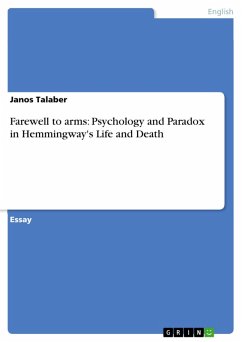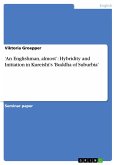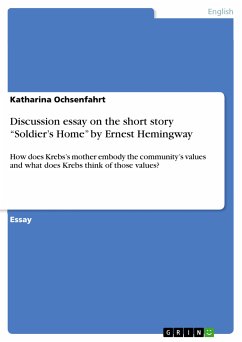Seminar paper from the year 2002 in the subject American Studies - Literature, grade: 1,0 (A), University of Marburg (Institute for Anglistics/ American Studies), course: PS The Initiation Theme in American Fiction, language: English, abstract: Initiation in Ernest Hemingway's A Farewell to Arms Since it was published in the late 1920s, Ernest Hemingway's novel A Farewell to Arms has mostly been read as a love story against the background of the First World War (Brooks 81; Matthews 77; Ross 90; Smith 78). This is right insofar as the novel deals with the young American Frederic Henry who, while being involved in the war on the side of the Italian Army, falls in love with a beautiful British nurse, Catherine Barkley. There is, however, more to this book: When looking at the world in which the protagonist finds himself, it becomes clear that it is one in which people are lacking proper, stable values. Everything that Frederic Henry learned in his teenage years, the world he grew up in and its complex value system based on such values as honor and dignity, has fallen apart. Frederic himself expresses this on several occasions, for example in Book Three, when he says, I was always embarrassed by the words sacred, glorious, and sacrifice and the expression in vain. We had heard them, sometimes standing in the rain almost out of earshot, so that only the shouted words came through, and had read them, on proclamations that were slapped up by billposters over other proclamations, now for a long time, and I had seen nothing sacred, and the things that were glorious had no glory and the sacrifices were like the stockyards at Chicago if nothing was done with the meat except to bury it. [...] Abstract words such as glory, honor, courage, or hallow were obscene beside the concrete names of villages, the number of roads, the names of rivers, the number of regiments and the dates. (Hemingway 184-5) Because of the meaninglessness of those old values, A Farewell to Arms is also a story dealing with a quest that was typical for Frederic Henry's generation: a quest for knowledge and a way of living in a world whose foundations have been shaken by the chaos created by World War I. At the beginning of the novel, Frederic Henry is, in many ways, lost: He neither knows where he belongs nor where he is going. He seeks pleasure in activities such as drinking huge quantities of alcohol and going to a whorehouse with his comrades. As it depicts his growth from immaturity to maturity, or, in a way, completion of his character, A Farewell to Arms should be read as his initiation story. [...]
Dieser Download kann aus rechtlichen Gründen nur mit Rechnungsadresse in A, B, BG, CY, CZ, D, DK, EW, E, FIN, F, GR, HR, H, IRL, I, LT, L, LR, M, NL, PL, P, R, S, SLO, SK ausgeliefert werden.

